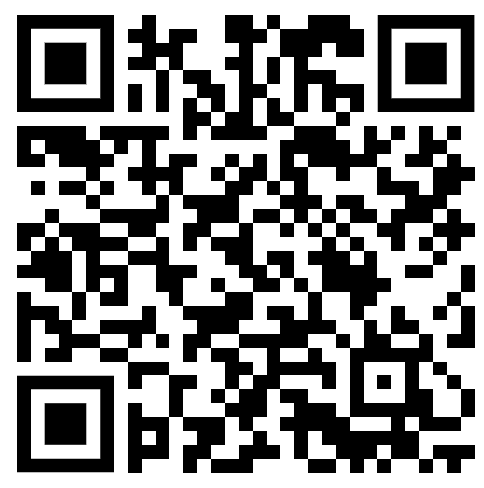R for data science
Productive coding in R with the tidyverse for (Post-)docs
Hands-on workshop, using packages from the tidyverse (dplyr, forcats, ggplot2, lubridate, purrr, readr, stringr, tibble, tidyr) and a few more: palmerpenguins, ggthemes, nycflights13, arrow, leaflet, shiny.
Nov - Dec 2025 —
P&PS - Data division
Overview
Hands-on workshop teaching the basics of data wrangling in R with the tidyverse. This workshop proposes to follow the first steps of the e-book published by the developers of the tidyverse: “R for data science (2e)”, written by Hadley Wickham, Mine Çetinkaya-Rundel, and Garrett Grolemund. The resource can be found for free here: https://r4ds.hadley.nz/
The workshops will be articulated in 4 sessions of 3-4h each, spanning from November to December 2025. Participants must attend the full series of 4 sessions. Registration for single sessions will not be allowed.
This seminar is eligible for doctoral training. Participants will receive a certificate at the end of the workshop.
Objective
Participants will be walked through the first 8 chapters of the e-book that cover the essential steps of importing, tidying, transforming and visualizing data (see figure 1 and table of content here). With these chapters, the authors “want to show you the “whole game” of data science giving you just enough of all the major pieces so that you can tackle real, if simple, datasets.” Intertwined in those main topics, the authors provide recommendations on best practices for effective (and readable) coding in the tidyverse.
We will also cover the last 2 chapters of the e-book which are focused on reporting with Quarto, a tool that helps you to
- make your code easily readable (also for yourself),
- record your thoughts while coding, in a structured way
- automatically produce reports in various formats (Word, html, pptx…)
This series of workshops can thus be seen as an impulsion to get started in R. Participants are then equipped to continue honing their R skills on their own. Further chapters of the e-book provide more in-depth coverage of the same topics.
Figure 1: In this section of the e-book, you’ll learn how to import, tidy, transform, and visualize data. - Figure taken as is from https://r4ds.hadley.nz/whole-game.html
Target Audience
This workshop is reserved for PhD candidates and Post-Doc (or assimilate) of the ULB. A maximum of 24 participants will be admitted on a first-come, first-served basis.
This workshop is not aimed for total beginners in programming. If you have no notion of programming whatsoever (never used R or any object-based language like Python), we recommend the first part of “Hands-on Programming with R” from Garrett Grolemund that can be found here: https://rstudio-education.github.io/hopr/. Having understood part 1 of this e-book should get you to the minimum level required for this series of workshops, although some experience with R is preferred.
If the tidyverse has no secret for you, then you are probably too advanced for this workshop. If unsure, we recommend that you have a look at the table of content of the “whole game” (chapters 1 to 8): https://r4ds.hadley.nz/whole-game.html
Prerequisites
Participants are expected to come with their own computer and charger, and have completed the “Prerequisite” chapter of the e-book : downloading R and RStudio, and downloading all relevant packages listed above (dplyr, forcats, ggplot2, lubridate, purrr, readr, stringr, tibble, tidyr, palmerpenguins, ggthemes, nycflights13, arrow, leaflet, shiny). For an optimal experience, and if your laptop does not have an USBC output, we recommend that you bring an adaptor. You will also need access to the online resource, so make sure you can connect to eduroam.
The workshop will take place in English, thus a good English proficiency is expected, but questions in French will be accepted.
Organisation
The workshops will be led by Morgane de Toeuf (bioengineer and 4th-year PhD candidate at the Faculty of Science), and assisted by members of the data division of the P&PS Yves Bettignies (civil engineer and doctoral candidate at Faculty of Polytech) and Andrea Rozo (PostDoc, biomedical engineer).
All workshops will last 3 to 4h and take place in the in the LIC building in La Plaine (info below).
After a short introduction to the daily session (30 min), participants will be guided through the steps to complete the main chapter of the day (see program hereunder). They will be expected to run the code on their own computer throughout the session, and questions that arise will be addressed directly.
Then, and following the e-book, the session will continue with more “zoomed-out” considerations on workflow: discussing tools and best practices for writing and organizing code, thus improving readability, shareability and gaining time in your practice.
Finally, and optionally, at the end of each session (30 min to 1h), participants will have the opportunity to test what they have learned on their own data sets, ask additional questions and engage in discussions on data processing, data management and best practices.
We are no statisticians, but data scientists who want to share their experience. Statistical tests will not be covered by this workshop, although we may be able to hint at additional resources. We may not have answers to all your questions, but if we don’t, we will follow up on it.
Event Information
All workshop will be held in the LIC (Learning Innovation Center) in the room LIC.2.202.
Important note: It is mandatory for each participant to follow theses steps prior to the first workshop; Roamer-X-app. Whithout this, access to the room might be difficult.
WS 1 - Data visualization, chapters 1-2
Wednesday 12/11/2025, 13h-17h, LIC.2.202
WS 2 - Data transformation, chapters 3-4
Wednesday 19/11/2025, 13h-17h, LIC.2.202
WS 3 - Data tidying and data import, chapters 5-8
Wednesday 26/11/2025, 13h-17h, LIC.2.202
WS 4 - Communicate your code with Quarto report, chapters 28-29
Wednesday 03/12/2025, 13h-17h, LIC.2.202
Registration
PhD & Post Doc Society
exclusively for and by ULB's PhDs
Copyright © 2023 P&PS. All rights reserved.


